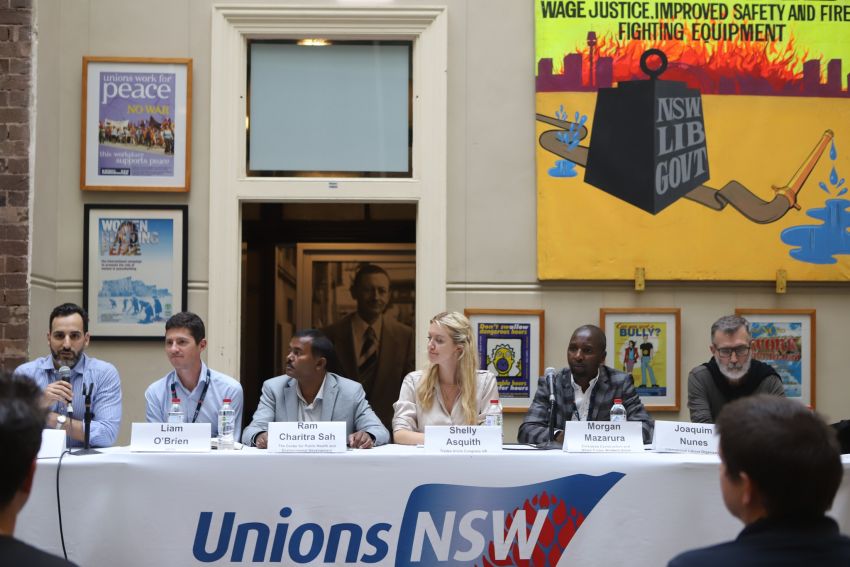
“The right to a healthy work environment is critical in our society,” Liam O’Brien, assistant secretary of the Australian Council of Trade Unions (ACTU) told a forum on international workplace health and safety on November 27.
The forum was part of the 23rd World Congress on Health and Safety at Work.
O’Brien said Australia has some shocking statistics on workplace safety.
“Around 200 people per year die from workplace incidents, a higher rate than some European countries.
“Regarding the current crisis over silicosis, 600,000 workers are exposed to the condition and 100,000 will be diagnosed with silicosis at some stage in this country.”
He said the ACTU is pushing governments for higher levels of worker protection.
“Unions alone are taking responsibility for protecting workers in this area. And health and safety rights are dependent on the right to organise and take industrial action to defend workers' rights and conditions,” O’Brien said.
Morgan Mazarura, from the Zimbabwe Construction and Allied Trades Workers Union, told the forum about Zimbabwe’s challenges. He said bad weather arising from climate change affects construction workers particularly hard.
“Politicians operate on a different agenda. We need stronger laws on workplace health and safety, and stronger enforcement.”
Shelly Asquith, health, safety and wellbeing officer for the Trades Union Congress UK, said: “The UK is now experiencing the biggest strike wave since 1926. And the Conservative government is trying to ban strikes.
“But the workers are winning on pay, but also on health and safety. Underpay means overwork and undoubtedly increased health and safety stress.
Asquith said guardianship for protecting workers health and safety falls to unions. “We will fight to defend and extend the basic right to industrial health and safety.”
Ram Charitra Sah, from the Asia-based Centre for Public Health and Environmental Development, said scientists involved the centre cooperate with unions on environmental and health and safety.
“Asia is a major source of labour for other countries, where they face worse conditions as migrant workers. And toxic chemicals rejected in Europe and other places are used in Asia.
“Collaboration between labour unions and health and safety organisations is developing in Asia. National and regional campaigns around the fundamental right to health and safety are vitally important,” Sah said.
Joaquin Nunes, branch chief for occupational health and safety, International Labour Organisation (ILO), said almost every case of industrial accidents was preventable.
“Overwork and under-payment causes increased pressure and increased risk of injury on the job.”
ILO conventions deem occupational health and safety a human right. “Member states and employers are meant to implement safety provisions, but often fail to do so,” Nunes he said.
“The role of unions is vital overall in the practice of OH&S in all countries. Working conditions and labour rights are closely linked in the defence of workplace safety.”
Owen Tudor, deputy general secretary of the International Trade Union Confederation (ITUC), said: “Three million people a year around the world die on the job. And 395 million a year are injured at work, with many more suffering illnesses.
“The good news is that we can do something about it. Occupational health and safety can be fixed.”
The ILO has finally recognised OH&S after 25 years of internal opposition, he said. “Nevertheless, union members and organisation are the key to further significant gains on health and safety at work.”
In response to a question on the rising incidence of psycho-social injuries at work, O’Brien noted it was the fastest growing source of industrial health and safety problems in Australia. He said its recognition as a safety issue is “ferociously resisted by employers”.
Unions need to take action on this, he said, as workers need to have the right to defend their health in all respects.
The problem of plastics in the workplace was also raised, with speakers stressed the right for workers to know about the dangers of plastics at work. A global framework on chemical hazards in industry is being developed.